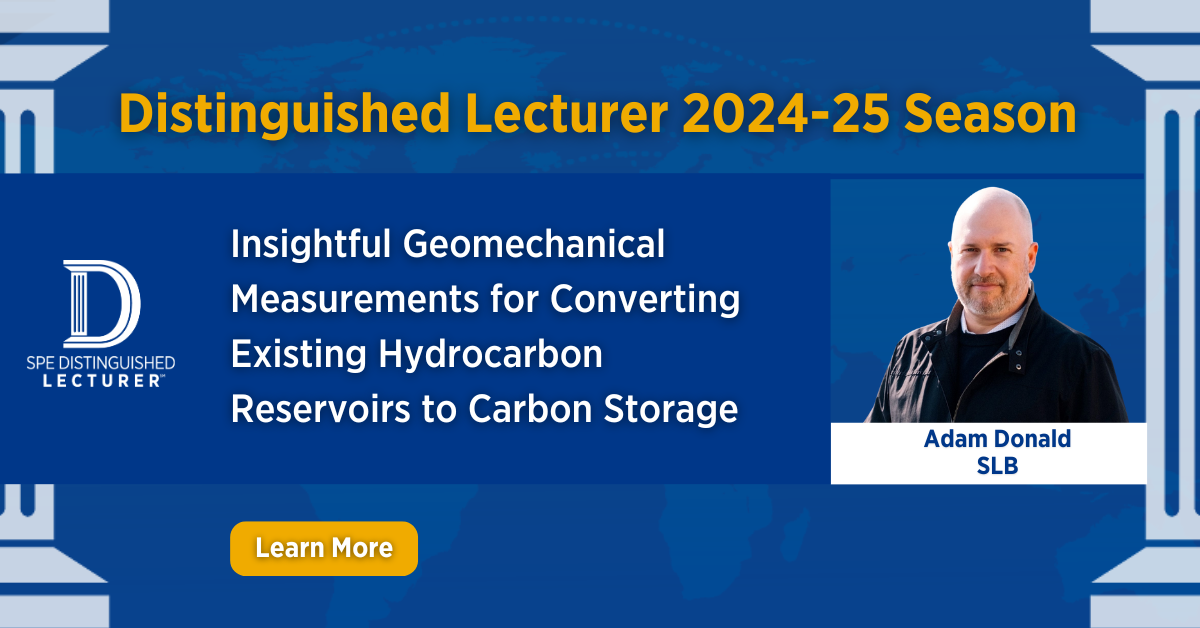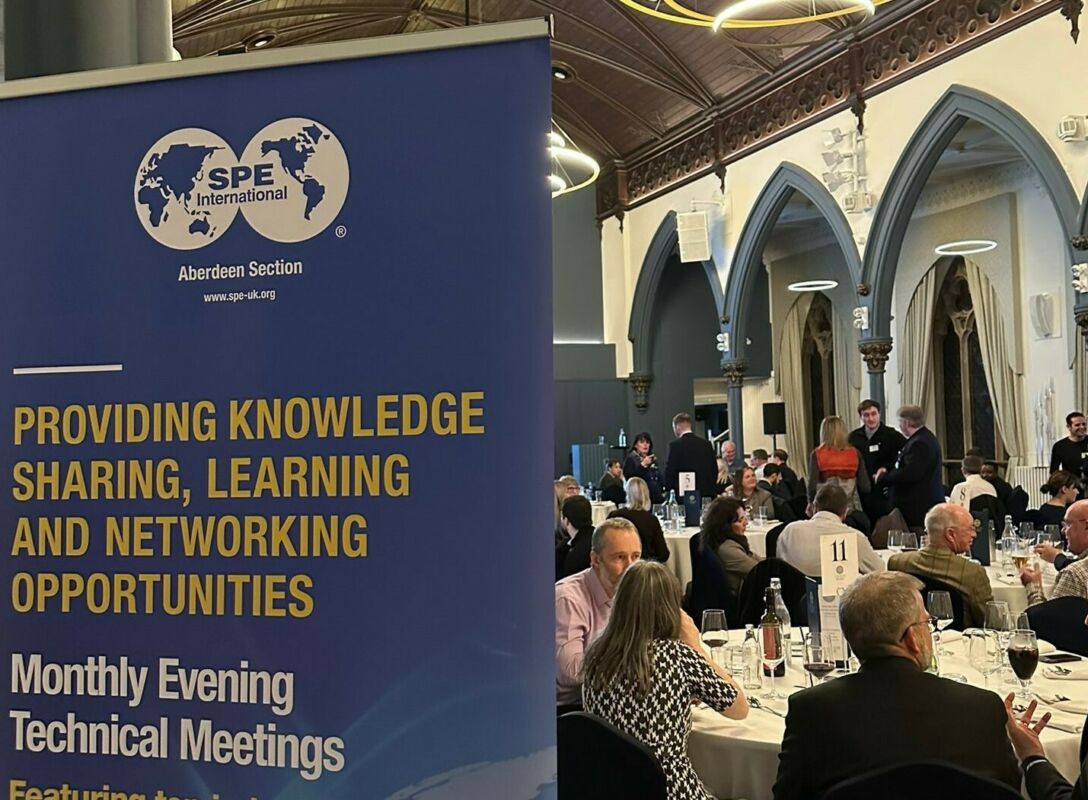Advertisement

Insightful Geomechanical Measurements for Converting Existing Hydrocarbon Reservoirs to Carbon Storage
Wednesday 11th December 2024 at 6pm
Location: Union Kirk, 333 Union Street, Aberdeen AB11 6BS (entrance from Bon-Accord Street)
With SPE Distinguished Lecturer Adam Donald.

Abstract
As the industry transitions from traditional hydrocarbon exploration and development into new energy and carbon capture and sequestration (CCS), formation integrity becomes more integral for asset longevity. For instance, many depleted fields are being assessed for CCS, but these depleted fields rarely have enough information within the overburden to assess geological seals or caprock integrity.
Geomechanics modeling with calibration data is required for determining the maximum injection pressure for containment for the carbon sequestration. Often the critical data were not gathered during the initial appraisal phases of these existing fields to perform the assessment with certainty. Three existing technologies can provide the geomechanical information needed for integrity assessment, namely compressional and shear slowness in cased hole, stress barrier limits, and natural fracture distribution. First, full waveform sonic logs that provide compressional and shear slownesses (1/velocity) are generally acknowledged as the key data missing from the formation evaluation needed in for the geomechanics modeling. Cased boreholes within the overburden always were deemed unattractive environments for sonic measurements, and now these will be the main sources of information in aging assets. Second, when entering the reservoir, to determine the limit of the stress barrier (difference in stress between caprock and reservoir), stress magnitudes and orientation require an integration of sonic, borehole image, and minifrac testing. Maximizing the injection pressure without risking leakage is the goal for the asset performance. Third, assessment of natural fractures within the reservoir and evaluation of the caprock play an important role for maximum injectivity and for reducing leakage risks, respectively. Although borehole image log analysis has been around for decades, sonic imaging technology is now more commonly being used to assess the far field within tens of meters around the wellbore providing new insights.
This work explains how existing technology from traditional oil and gas can be used for CCS reservoir and overburden assessment. Specifically, three topics are covered: (1) sonic data analysis within single-and double-string casings; (2) integration of sonic, image, and minifrac analysis for stress characterization; and (3) natural fracture evaluation using far field sonic imaging. Case studies from reservoirs worldwide (Asia, Europe, Middle East, North America) serve as examples of using these insightful measurements.
Adam's Biography
J. Adam Donald is the Technical Director for Geomechanics and Wellbore Acoustics with Reservoir Performance Division, SLB, based in Dubai, UAE. He joined SLB in 1998 as a wireline field engineer has held field, technical, and management positions in Canada, USA, Norway, Malaysia, France, Romania, and United Arab Emirates. His area of focus has been on applications of wellbore sonic and image data on geomechanics, geophysics, and petrophysics workflows. He received his bachelor’s degree in geological engineering from University of Waterloo in Ontario, Canada (1998), and a master’s degree in mining engineering from Dalhousie University in Nova Scotia, Canada (2004). Adam holds seven patents in areas of borehole acoustics and geomechanics and is a registered Professional Engineer in Canada. He is an active publishing member of SPWLA, SPE, ARMA, and SEG with over 50 industry and scientific articles









